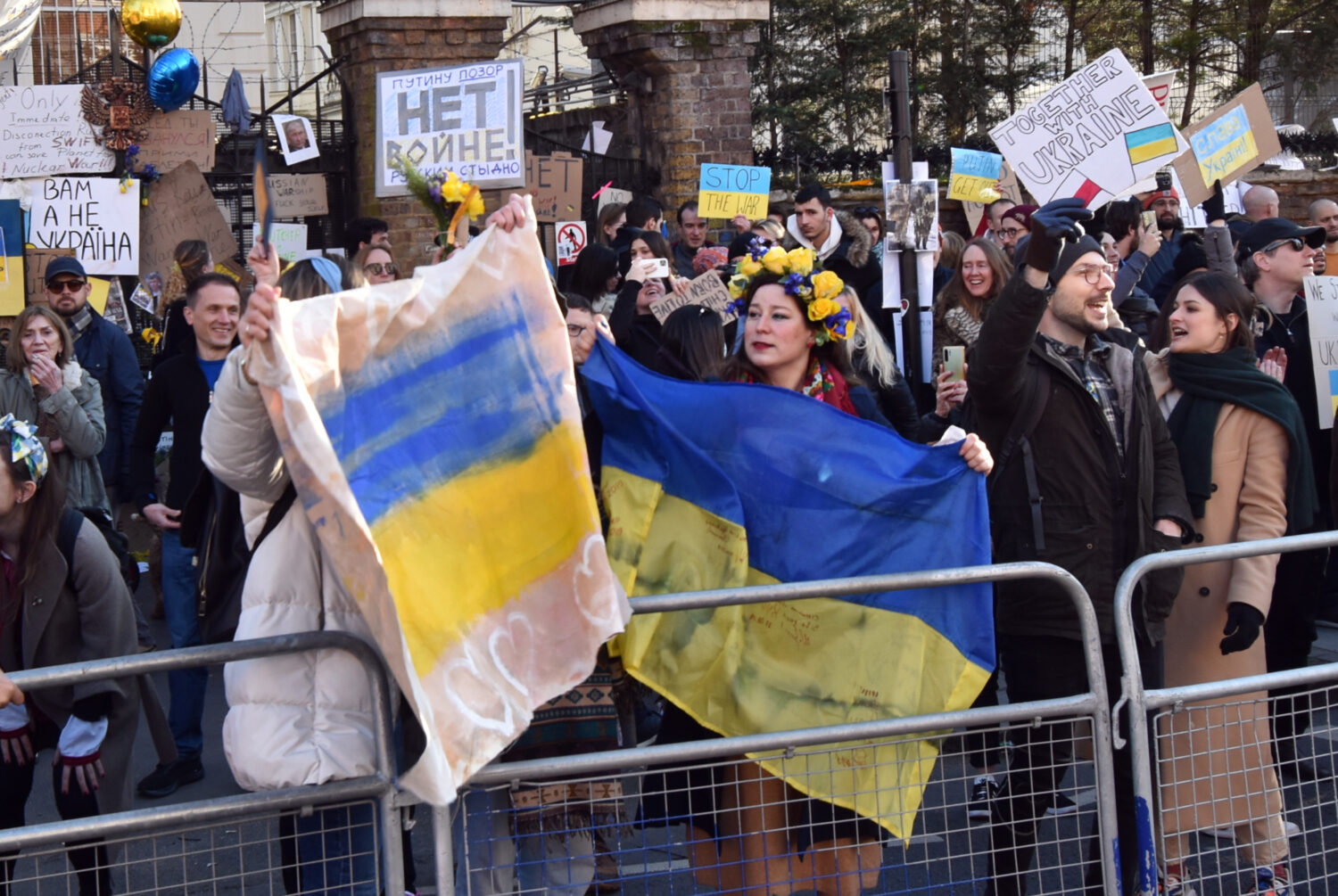
UK Leads on Russia Sanctions, but Must Do More to Deliver Reparation to Ukraine
Lauren Schaefer, REDRESS Legal Fellow
Three years into Russia’s full-scale invasion of Ukraine, the human cost continues to mount. According to the Office of the United Nations High Commissioner for Human Rights, civilian casualties exceed 40,000 as of March 2025. Russia continues to occupy around 20% of the country while approximately 3.7 million people remain internally displaced, and as of May 2025, 5.6 million have sought refuge abroad. Over 12.7 million people are in need of humanitarian assistance.
The UK has continued to take action to disrupt the financial and operational lifelines of Putin’s war machine. While we welcome this response, it is essential that at least part of the money generated from sanctioned assets and sanctions violations are redirected to support the survivors in Ukraine who need it most.
A new briefing launched by REDRESS analyses the UK’s evolving approach to sanctions in response to Russia’s ongoing aggression against Ukraine as of July 2025. You can read some of its key takeaways below.
The UK’s Intensified Sanctions and Enforcement Response
Sanctions have become the cornerstone of Britain’s strategy against Russia’s war in Ukraine. Since the start of the year the UK has significantly ramped up its response: with 364 new sanctions as of July 2025 so far—exceeding the entirety of 2024—the UK has systematically targeted kleptocrats, oil giants, military suppliers, and cybercriminals who help sustain Russia’s aggression.
The UK has now sanctioned over 2,500 individuals, entities, and ships under its Russia regime. The Foreign, Commonwealth & Development Office estimates that sanctions have cost Russia at least $450 billion since the full-scale invasion began, roughly equivalent to two years of war financing. Russia is reportedly paying up to six times the usual price for dual-use items— goods, software, and technologies that can be used for both civilian and military purposes—causing defence sector component costs to rise by 30% compared to global prices.
Enforcement mechanisms are also starting to take effect: in April, the National Crime Agency secured the UK’s first criminal conviction for Russia sanctions breaches, against Dmitrii Ovsiannikov, the former Russia-appointed Governor of illegally annexed Sevastopol in Crimea, who was sentenced to 40 months imprisonment for circumventing sanctions.
All-Party Parliamentary Group on Magnitsky Sanctions
Alongside the UK’s sanctions expansion, there has been growing momentum behind efforts to ensure that assets linked to sanctions violations can be used to support survivors of the conflict.
The APPG on Magnitsky Sanctions and Reparation has been instrumental in raising this issue within Parliament. Supported by REDRESS as its Secretariat, the APPG has consistently called for assets linked to sanctions violations to be redirected towards reparations for survivors of the war. In 2024, the UK’s enforcement agencies—including the National Crime Agency, Office of Financial Sanctions Implementation, and Financial Conduct Authority—generated nearly £50 million from penalties, seizures, and related enforcement actions tied to violations of the UK’s Russia sanctions regulations.
One such case is that of Petr Aven, a Russian oligarch alleged to have breached UK sanctions. The National Crime Agency recovered almost £800,000 in connection with his case – funds that could be redirected to support reparation mechanisms such as the future claims commission set up to support the Register of Damage for Ukraine or the Trust Fund for Victims at the International Criminal Court.
There are also the proceeds from the sale of Chelsea Football Club. The UK Government committed in 2022 to use these funds to support victims in Ukraine, but no agreement has been reached with the former owner, Roman Abramovich. Ministers have now indicated they are prepared to pursue legal action to unlock the funds.
An Uneven International Landscape
While the UK has intensified its sanctions response, international efforts are inconsistent. The EU has continued to show strong momentum, imposing at least 224 designations in the first half of 2025 alone. Meanwhile, the United States has taken a less aggressive approach under the Trump administration, with far fewer designations than during the Biden years.
Looking Ahead
As the UK considers how best to address the long-term consequences of the war, ensuring that the penalties generated by sanctions enforcement support survivors remains a pressing challenge. Bridging the gap between sanctions policy and survivor-centred justice will require legal reform, political commitment and continued collaboration with Ukrainian survivors and civil society.
The Crime and Policing Bill, currently going through Parliament, presents a key opportunity for the government to allow assets recovered through sanctions enforcement proceedings to be used to support survivors. The Bill already includes proposals to improve how the UK recovers and uses money from the proceeds of crime. REDRESS has recommended that these powers be expanded so that assets taken from individuals who violate sanctions can also be used for public good, such as supporting survivors of the war in Ukraine. It would also bring the UK in line with the EU’s Directive on sanctions enforcement and asset recovery, and countries like the United States, which sent over $4 million from a sanctioned Russian oligarch to support war veterans in Ukraine. The UK’s sanctions strategy has shown determination to disrupt Russia’s war economy. The next step is to ensure that this strategy also delivers reparation for those who need it most.
Photo: CC BY-SA 2.0, Loco Steve. Pro-Ukrainian protestors outside the Russian embassy, London.
